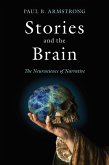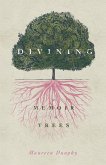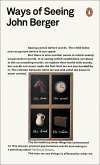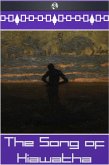"e;Emerson's Essays"e; by Ralph Waldo Emerson is a timeless collection of profound and thought-provoking essays that explore the core principles of transcendentalism and offer profound insights into the human experience. In this enriching anthology, Emerson presents a wide array of essays covering topics such as nature, self-reliance, society, and the pursuit of truth and wisdom. Throughout the essays, Emerson eloquently captures the essence of transcendentalism, a philosophical and literary movement that emphasizes the inherent goodness of people and nature, as well as the individual's innate connection with the divine. He encourages readers to seek truth and wisdom within themselves and the natural world, embracing intuition and self-trust as essential guides to living a meaningful and authentic life.
Dieser Download kann aus rechtlichen Gründen nur mit Rechnungsadresse in A, B, BG, CY, CZ, D, DK, EW, E, FIN, F, GR, HR, H, IRL, I, LT, L, LR, M, NL, PL, P, R, S, SLO, SK ausgeliefert werden.









